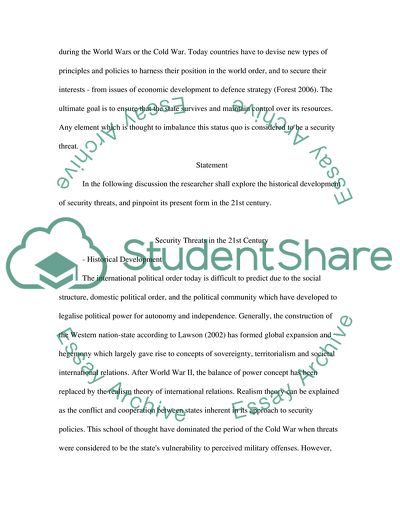Cite this document
(The Greatest Threats to Our Security in the 21st Century Research Proposal, n.d.)
The Greatest Threats to Our Security in the 21st Century Research Proposal. Retrieved from https://studentshare.org/social-science/1730757-international-relations
The Greatest Threats to Our Security in the 21st Century Research Proposal. Retrieved from https://studentshare.org/social-science/1730757-international-relations
(The Greatest Threats to Our Security in the 21st Century Research Proposal)
The Greatest Threats to Our Security in the 21st Century Research Proposal. https://studentshare.org/social-science/1730757-international-relations.
The Greatest Threats to Our Security in the 21st Century Research Proposal. https://studentshare.org/social-science/1730757-international-relations.
“The Greatest Threats to Our Security in the 21st Century Research Proposal”, n.d. https://studentshare.org/social-science/1730757-international-relations.


